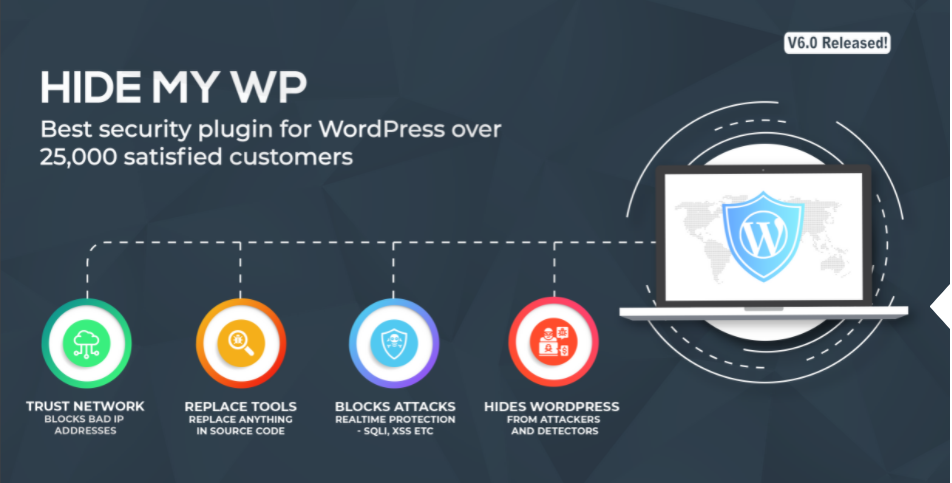Even though a beneficial CMS, WordPress is prone to various attacks because of the numerous security issues that we ignore. One of the most deadly attack types hackers use is injection attacks. Some injection attacks are Code Injections, SQL injections, XPath injections, and SSTI. All these attacks have something in common; they introduce malicious code to your website by using the vulnerabilities in your WordPress.
But how they implement the attack and acquire the sensitive files varies based on the kind of attack they use. To treat a problem, we must get to the root of it. Hence, we should learn about these attacks and come up with the best solutions to secure WordPress. This article will help you briefly understand code injection and how it affects your website if a hacker uses it on your website.
Code Injection:

Code injection is a type of injection attack that exploits a website’s input validation vulnerabilities to insert an unsafe code that affects the course of action of the website’s program.
The input code that the hacker uses depends on the language your website uses; he injects a Java code if your website language is Java or PHP if your website uses PHP language.
If your website allows running an invalid code, then your website is vulnerable to this attack.
Code Injection Examples:
Let us go through a PHP code injection to give you a vivid idea of how a code injection works. The following is the username parameter that a website uses:
http://www.xyz.com/index.php?user_name=admin
However, a hacker can enter an invalid string and, the PHP interpreter fails to realize that it is an unsafe code,
http://www.xyz.com/index.php?user_name=admin;phpinfo();
The additional command phpinfo() will allow the hacker to obtain the information regarding your PHP operator.
The below code will let an attacker retrieve confidential data about your PHP interpreter’s directory listings, which should not be accessible by outsiders.
http://www.xyz.com/index.php?user_name=admin;system('ls -l');
The injected code that has the (‘ls -l’) command displays the directory listing.
Impact Of Code Injection On Websites:
- It can lead to outsiders get a hold of your private data.
- It can lead to attackers gaining control of the host.
- It can result in access refusal.
- Another consequence is that a hacker can modify the data in a database that could harm the way your website works.
How To Prevent Code Injection Attacks:
We have learned the dangers of giving an opening to hackers. Just one sign of vulnerability can result in attackers swooping in to exploit it.
Thus, we must raise barriers against the hackers and give them no chance to harm our website. Let us gain an understanding of preventive methods of Code Injection attacks:
1.User Input Validation:
We must put forth all the inputs in the website query options to input validation and allow only the safe data to go to the database. We must also restrict the usage of special characters if possible.
You must subject your website’s traffic to input validation and restriction, including your partners, managers, vendors, regulators, etc. Caution is never too much, and this is a necessary step.
2.Reduce Vulnerable Code:
Vulnerable code is equal to vulnerable website. Online tools can help find any vulnerabilities and flaws in your code that a hacker can use to his advantage.
So you must discover those vulnerabilities and take appropriate measures to reduce them. You can use online tools that analyze your code and find the vulnerabilities in it.
3.Avoid Vulnerable Constructs:
We should avoid using vulnerable evaluation constructs like eval() and similar constructs on user inputs that make your website vulnerable.
4.Scan Your Website:
You can use scanner security plugins like ‘Scan My WP’ that scans your WordPress and notifies you about the vulnerabilities it found in your website. Doing this helps keep your WordPress security up-to-date.
5.Disabling Access To PHP Files:
Earlier, we have discussed how a hacker can use PHP injections to access PHP files and directory listings of your website. Using a security plugin like ‘Hide My WP’ that restricts outsiders from accessing those files can be very helpful in securing the website. After all, you are all here to look for ways to protect your websites. Hide My WP not only stops hackers from accessing PHP files and Directory listings but has much more to offer:

- It can hide your WordPress.
- It will protect your WordPress from lethal attacks like SQL injection attacks, CRSF, XSS, read arbitrary files, and brute-force attacks.
- It permits you to hide your WordPress login page.
- It will help detect attacks and auto-block them.
- It can rename plugin and theme folders.
- It can protect your WordPress from unknown hackers or bots via a “trust network.”
- It allows you to block and permit users from specific counties.
- It lets you to change anything in source code of your website.
- It protects from new attack patterns.
- It sends you details like the attack value(How they hack you?), Impact(how dangerous is it?), Attacked page(which plugin did they use?) and their IP addresses.
- It creates a dynamic list of Bad IP addresses for future references.
- It can hide your WordPress from theme and plugin detectors.
- It helps minify HTML and CSS.
- It has anti-spam included.
Conclusion:
- There are various injection attacks like Code Injection attacks, SQL injection attacks, XPath injection attacks, etc.
- Code Injection attacks can be very lethal for your website because a successful attack can cause problems for you.
- Code injection is an injection attack type that uses a website’s input validation and other vulnerabilities to insert malicious code into your website that can change how your website program works in favor of attackers.
- We can prevent Code Injection attacks by:
- Enforce user input validation in your websites.
- Reduce code vulnerabilities of your WordPress.
- Avoid vulnerable constructs that could leave your website exposed.
- Scan your websites to find any vulnerabilities using security plugins like ‘Scan My WP.’
- Disable direct access to PHP files by using WordPress security plugins like ‘Hide My WP’ that help further improve your website’s security.
- There will always be one or the other vulnerability in your website that pops up and says hello to the world. But no matter how many security issues arise, we can take good care of our websites if we stay alert and take security measures all the time.
